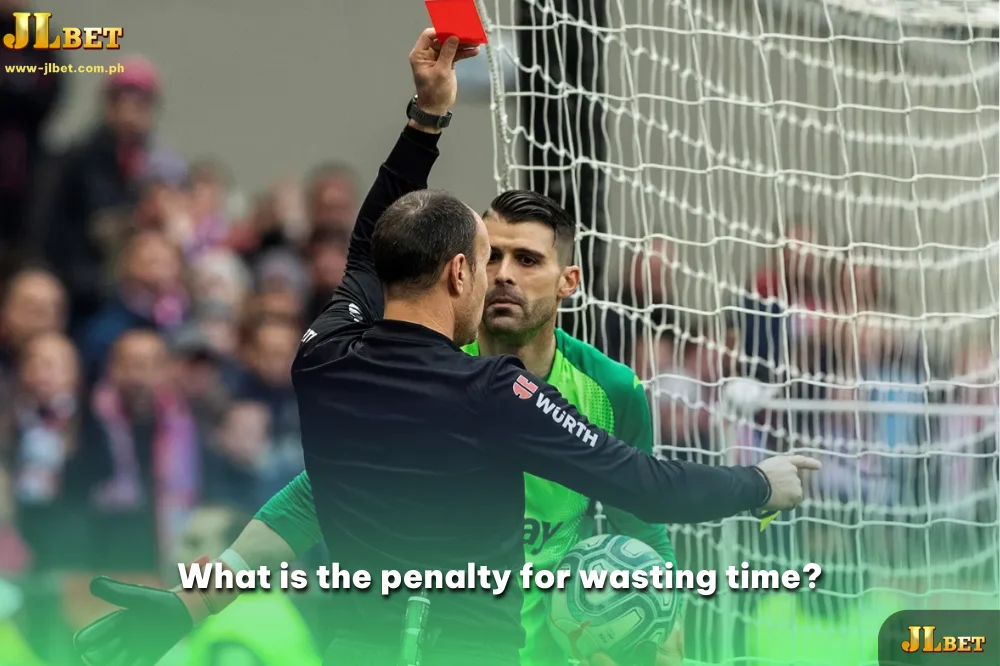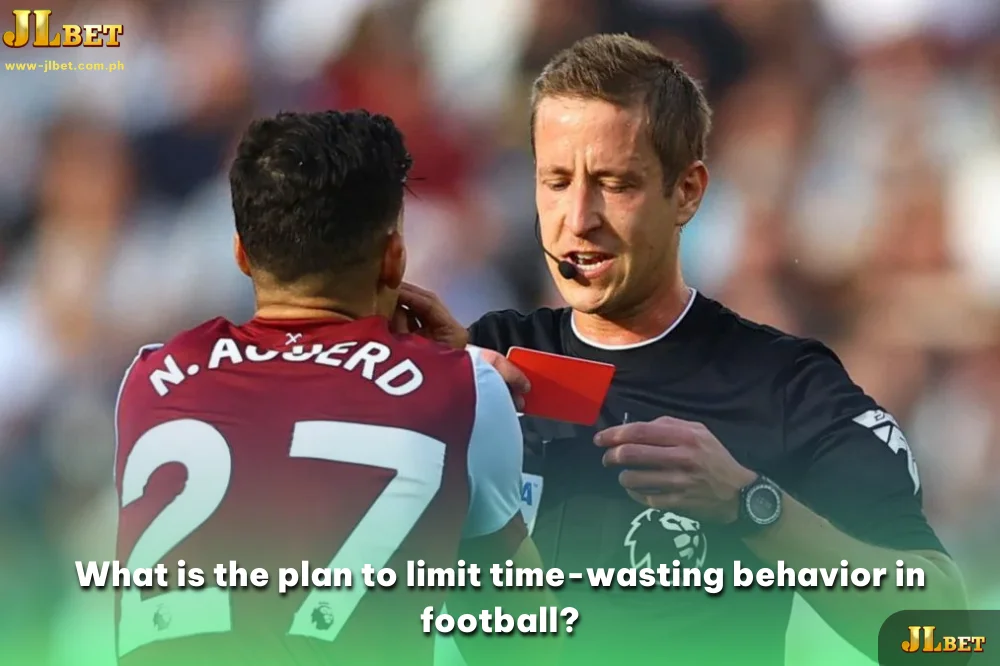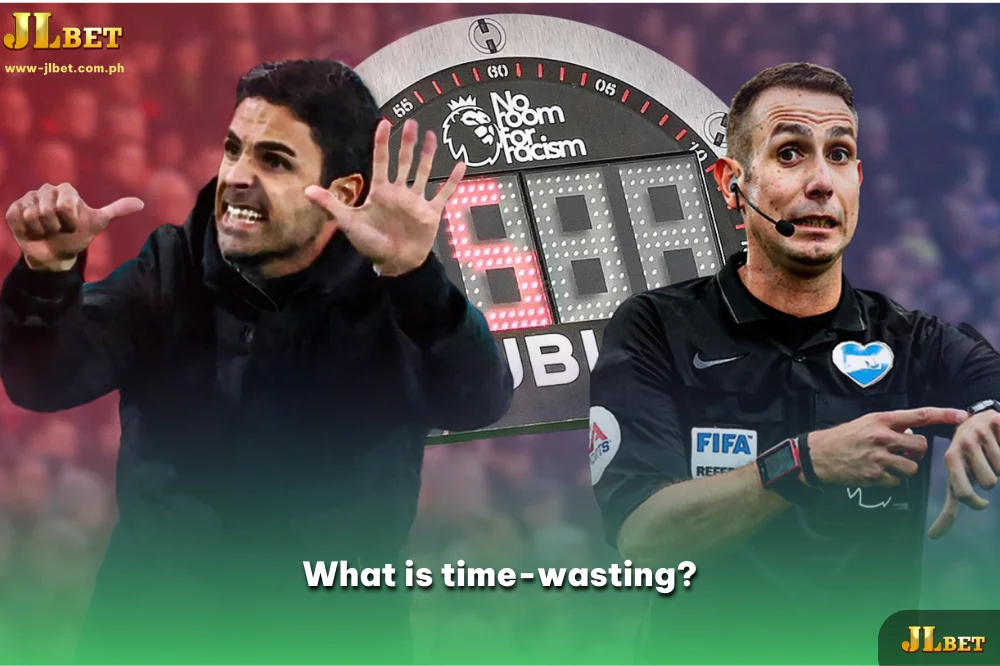What is time-wasting is a topic that many football fans are interested in because it is a term often seen in matches. In today’s article, Jlbet will provide you with all the information surrounding this interesting phrase in sports.
What is time-wasting?
Wasting time is simply understood as players intentionally performing cheating actions or tricks to disrupt the match. This is considered a foul in soccer. Signs to recognize time-wasting situations such as intentionally lying on the field, taunting the referee/opponent, carrying the stretcher slowly, hesitating forever to finish when taking a penalty kick,…
Players rely on this action to prolong the match in some special situations to benefit their team. This is one of the common situations in matches. It is considered a lack of transparency and not fair play.
Time-wasting activities often appear at the end of the match. Because for teams that are sure of winning with a score difference that is not too large, they will buy time so that their opponents cannot score any more goals.
What is the penalty for wasting time?
Many players and fans feel outraged by the ‘fake’ Time-wasting, which is why this behavior has been condemned on many football forums. From there, the football law dealing with this situation was officially born.
The impact of wasting time in the match is so great that soccer rules have clear regulations on penalties for this behavior. According to article 12 of football rules, a player who commits a foul will be subject to a penalty kick or a direct kick from the opposing team. The penalty will depend on the severity of the time-wasting situation.
Normally in football matches, if a player violates this rule, he will be warned by the referee. In case of intentional violation, he will receive a yellow or red card. At present, FIFA has proposed to establish a regulation for the minimum duration of live ball in the match to be 60 minutes. This principle will help minimize time-wasting behavior while ensuring fairness for the two teams.

What is the plan to limit time-wasting behavior in football?
The act of wasting time is still appearing in many large and small football matches around the world. To minimize this situation, referees and organizers often apply the following 4 solutions:
The referee monitors and reminds the players continuously
The first way to limit time-keeping situations is for the referee to always follow the players and goalkeepers on the field. The referee must regularly remind them to perform activities such as giving the ball, throwing the ball, getting up quickly if there is a collision, and not intentionally slowing down or prolonging time. Especially for goalkeepers, you can completely remind them to put the ball on the field within 30 seconds to optimize.
Restore the 6-second rule
If you don’t know, in the past, soccer matches had regulations that goalkeepers could not hold the ball for more than 6 seconds. However, it has been abolished at present to avoid constraints on the goalkeeper. However, goalkeepers often take advantage of this loophole to commit time-wasting acts. Therefore, restoring the 6-second rule also plays an important role in limiting the above situations.
Do not let the penalized player touch the ball
Players who are punished often find ways to circumvent the rules to gain time. After being penalized by the referee, the striker will intentionally kick the ball further away to limit the remaining playing time. Therefore, applying the rule of not allowing fouled players to touch the ball will avoid wasting time causing a loss of time in the competition.

Conclude
In the above article, Jlbet has decoded for you the question What is time-wasting? as well as solutions to limit this unfair play situation in football competitions. This is a condemnable act, and football rules need to be applied more strictly so that teams always have fair and transparent matches.

